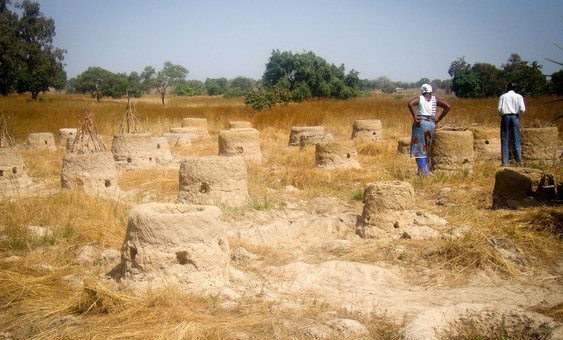Restore land to save the planet, boost the economy, says UN expert

Investing in land restoration could not only help keep our planet healthy, but also be the starting point for resolving some of the biggest issues of our time, the head of the UN entity tackling desertification told journalists on Friday via video conference, from the ongoing global summit on the issue, underway in India’s capital.
Put concisely, we must “invest in land restoration as a way of improving livelihoods, reducing vulnerabilities contributing to climate change, and reducing risks for the economy,” Mr. Ibrahim Thiaw, Executive Secretary of the UN Convention to Combat Desertification (UNCCD) said, speaking on the sidelines of the 14th session of the Conference of the Parties, in New Delhi.
Get our full story here.
Hurricane Dorian: death toll expected to rise, thousands still missing

As the UN and other aid partners respond to huge humanitarian needs in the hurricane-struck Bahamas, latest reports indicate that the death toll is likely to rise considerably.
To date, 30 people are confirmed to have died after Hurricane Dorian hit the islands of Abaco and Grand Bahama last weekend with maximum wind speeds of 297 kilometres per hour – that’s 185 miles per hour.
But the Government says that thousands are still missing after the Category 5 storm brought with it a storm surge of 18 to 23 feet high (5.5 to seven metres). Latest information suggests that some 76,000 people are homeless on the worst-hit islands.
Our coverage here.
UN launches initiative to promote understanding in Malian communities

In Mali, a trial project is under way to help aid workers get a better understanding for the needs of communities vulnerable to escalating violence and armed extremists.
The initiative is run by OCHA, the UN’s aid coordination wing. It relies on a local individual going into villages and asking people what they want most.
The project comes amid attacks by armed groups and militias, against both Government forces and UN peacekeepers in the centre and north of the country.
According to OCHA, the number of people displaced in Mali has doubled in the last year, to nearly 170,000.
Dire funding crisis in Yemen could close lifesaving health facilities

In Yemen, lifesaving reproductive healthcare services for more than one million women are threatened, thanks to severe funding shortages, the UN Population Fund (UNFPA) said on Friday.
According to the agency, although donors made humanitarian pledges worth $2.6 billion in February, less than half has been received.
Every two hours, a Yemeni woman dies from complications of pregnancy and childbirth, and another 20 suffer preventable injuries, infections or disabilities.
UNFPA Executive Director, Dr. Natalia Kanem, said that unless more funds are found immediately, women and their babies could be at risk.
Growing a future free of terrorism: UN News special report from Cameroon

When terrorists attacked and ransacked 30-year old Mamma Hamidou’s village in the Far North region of Cameroon four years ago, she faced an impossible choice.
Hand over her young daughter or risk that her husband be executed on the spot. “The men came at night,” she told UN News in the town of Kourgui where she now lives.
“They wanted to take my daughter, but I pleaded with them not to, because she was just 10 years old at the time. I was polite because if you are rude the men will do terrible things to you.”
Read and listen, here.
Listen to or download our audio News in Brief for 6 September, on Soundcloud:

